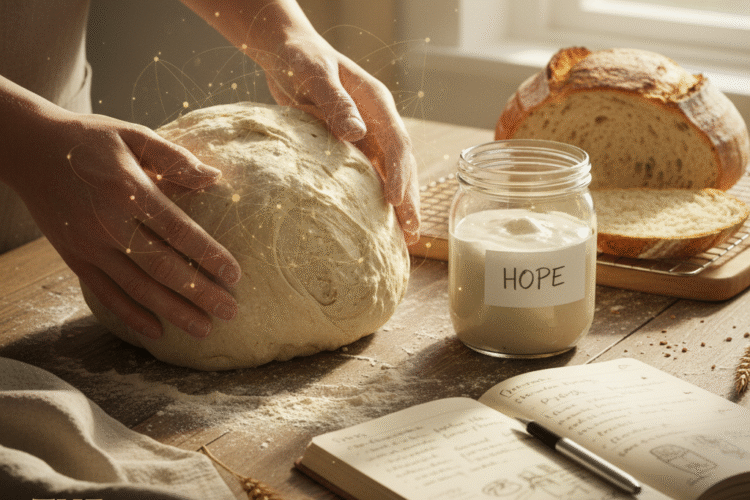in a world of instant gratification and quick fixes, the act of making sourdough bread stands as a gentle rebellion. It’s a journey that extends far beyond flour and water, offering a surprisingly profound classroom for life lessons. For many, what starts as a quest for the perfect tangy loaf quickly transforms into a meditative practice, a study in patience, and a masterclass in resilience.
The allure of sourdough isn’t just in its unique flavor or superior texture; it’s in the process itself. It demands a level of commitment and understanding that a conventional yeast bread simply doesn’t. And in that demanding dance, we often discover more about ourselves than we do about gluten development.
Lesson 1: Patience is Not Just a Virtue, It’s a Necessity
Unlike its commercial yeast counterparts that rise on command, sourdough operates on its own timeline. The starter needs feeding, resting, and observing. The dough demands slow fermentation, gentle handling, and extended proofing. There’s no rushing perfection here. Every step, from the initial mix to the final bake, teaches us to slow down, to observe, and to trust the process. In a fast-paced world, sourdough forces us to breathe, reminding us that some of the best things in life take time to develop, to deepen, to truly flourish.
Lesson 2: Embrace Imperfection and Learn from Failure
Your first few loaves might be dense, too sour, or even hockey pucks. Your starter might seem sluggish, refusing to bubble with enthusiasm. These “failures” are not setbacks; they are data points. Sourdough teaches us that every less-than-perfect loaf is an opportunity to adjust, to understand the nuances of temperature, hydration, and flour. It’s a tangible demonstration that real growth comes from analyzing what went wrong, making small tweaks, and trying again. This resilience, born in the kitchen, translates powerfully to navigating life’s inevitable bumps and detours.
Lesson 3: Nurturing Leads to Growth (Literally and Figuratively)
A sourdough starter is a living, breathing entity. It requires consistent care, regular feeding, and the right environment to thrive. Neglect it, and it weakens; nurture it, and it strengthens, becoming more vibrant and resilient. This direct correlation between effort and outcome is a powerful metaphor for our own lives and relationships. What we consistently tend to, what we pour our energy into, will grow and yield fruit. Sourdough reminds us that consistent, loving care is the foundation for robust health – be it for a starter, a garden, a friendship, or ourselves.
Lesson 4: The Beauty of Symbiosis and Controlled Wildness
Sourdough is a marvel of microbiology, a vibrant ecosystem of wild yeasts and beneficial bacteria working in harmony. It’s a beautiful example of how diverse elements can come together to create something extraordinary. This controlled wildness, this harnessing of natural forces, teaches us to appreciate the delicate balance in nature and in our own lives. It encourages us to find beauty in the organic, the slightly unpredictable, and to understand that sometimes, the most extraordinary results come from embracing the wild, untamed aspects of life.
Beyond the Crust
Ultimately, making sourdough isn’t just about baking bread; it’s about cultivating a mindset. It’s about understanding that deep satisfaction often comes from slow, intentional effort. It’s about accepting that growth isn’t always linear, and that patience and resilience are the most powerful ingredients for a truly rich and fulfilling life. So, the next time you’re kneading dough or waiting for your starter to bubble, remember you’re not just baking; you’re embarking on a journey of self-discovery, one delicious, chewy slice at a time.

